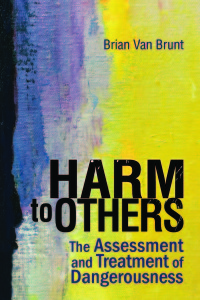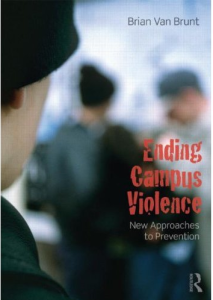NaBITA Newsletter
October 21, 2015
Join NaBITA Today!
In NaBITA's monthly newsletter we share a Tip of the Week, spotlight a resource relevant to the field, provide news, and share information about our upcoming events. In addition, each NaBITA newsletter brings you information relevant to the field of behavioral intervention and prevention, with current events and relevant resources. If you like the newsletter, we hope you will join NaBITA so that you can receive the weekly version of this great member benefit. Click here for more information.
Resource Spotlight
NaBITA is pleased to spotlight The Framework for Developing Institutional Protocols for the Acutely Distressed or Suicidal College Student,
a tool to aid your institution in developing or revising protocols suitable to its unique environment, by The Jed Foundation and co-sponsored by the American College Health Association (ACHA), College Student Educators International (ACPA), Association for University and College Counseling Center Directors (AUCCCD) and Student Affairs Administrators in Higher Education (NASPA).
Tip of the Week
Can We Close this Case?
When can we close a BIT case? This is a simple question with a larger and more complicated answer. Before we consider when we can close a BIT case, let’s look at times when we probably should not close a BIT case.
-
Don’t simply close a case because a student leaves your institution. They could still live close to the school and pose a risk for further disruption or disturbance. Also, the team should assess the likelihood of them re-enrolling.
To read the complete Tip, click here.
Join us at the 7th Annual NaBITA Conference
and the 6th Annual Campus Threat Management Institute
November 17-21, 2015
The Westin Riverwalk in San Antonio, TX
Registration deadline is Monday, November 2, 2015.
Register today!
For more information, please visit the NaBITA Conference webpage or contact:
Amanda Tarczynski, amanda@nabita.org or (484) 321-3651
Less Than 2 Weeks Left to Register. Register Today!
Please note that our room block at the Westin Riverwalk has sold out. An additional room block has been opened for NaBITA Conference attendees at Hotel Contessa, located very close to the Westin Riverwalk.
Keynote Speaker Sessions
Opening Keynote
The Evolution of Behavioral Threat Assessment: Future Directions for Violence Prevention
Presented by Dewey G. Cornell, Ph.D., forensic clinical psychologist and Bunker Professor of Education in the Curry School of Education at the University of Virginia, Director of the U.Va. Virginia Youth Violence Project and a faculty associate of the Institute of Law, Psychiatry, and Public Policy.
This presentation will examine how threat assessment has evolved from the broader field of risk assessment and what improvements are needed to establish it as an evidence-based practice. In the past 20 years behavioral threat assessment has emerged as a form of risk assessment with a distinguishing emphasis on targeted violence, attention to social ecology, and prevention through problem resolution. The advancement of threat assessment requires continued progression from an emphasis on prediction to multi-tiered prevention, from decisions guided by intuition to empirically-informed assessment, and from case reports to controlled studies. The presenter will illustrate these points with case experiences and research in Virginia public schools and higher education settings.
 Dr. Cornell is a forensic clinical psychologist and Bunker Professor of Education in the Curry School of Education at the University of Virginia. Dr. Cornell is Director of the U.Va. Virginia Youth Violence Project and a faculty associate of the Institute of Law, Psychiatry, and Public Policy. His research and teaching is concerned with the prevention of youth violence and bullying, as well as the facilitation of healthy student development and achievement through a supportive and structured school climate. Dr. Cornell has worked with juvenile and adult violent offenders, testified in criminal proceedings and legislative hearings, and consulted on violence prevention efforts. He has authored more than 200 publications in psychology and education, including studies of juvenile homicide, school safety, bullying and threat assessment. Two of his books are School Violence: Fears Versus Facts, and Guidelines for Responding to Student Threats of Violence. He is currently conducting a federally-funded study of school climate and bullying in more than 700 Virginia secondary schools.
Dr. Cornell is a forensic clinical psychologist and Bunker Professor of Education in the Curry School of Education at the University of Virginia. Dr. Cornell is Director of the U.Va. Virginia Youth Violence Project and a faculty associate of the Institute of Law, Psychiatry, and Public Policy. His research and teaching is concerned with the prevention of youth violence and bullying, as well as the facilitation of healthy student development and achievement through a supportive and structured school climate. Dr. Cornell has worked with juvenile and adult violent offenders, testified in criminal proceedings and legislative hearings, and consulted on violence prevention efforts. He has authored more than 200 publications in psychology and education, including studies of juvenile homicide, school safety, bullying and threat assessment. Two of his books are School Violence: Fears Versus Facts, and Guidelines for Responding to Student Threats of Violence. He is currently conducting a federally-funded study of school climate and bullying in more than 700 Virginia secondary schools.
Closing Keynote
Learning to Kill: The Impact of Media Violence
Presented by Lt. Col. Dave Grossman, U.S. Army (Ret.), former Professor of Military Science and Psychology at West Point, co-author of Stop Teaching Our Kids to Kill: A Call to Action Against TV, Movie and Video Game Violence, and author of On Killing: The Psychological Cost of Learning to Kill in War and Society.
This presentation will address several diverse topics which were brought together by the author’s experiences as: (1) a military and law enforcement trainer and psychologist, (2) a trainer of health professionals, law enforcement personnel, and first responders in the aftermath of the Jonesboro, Springfield, Littleton, Nickel Mines Amish School, and Virginia Tech school shootings, (3) a consultant in the Paducah school shootings and other major murder cases, and (4) a speaker to the annual conventions of the AMA, APA and AAP.
Initially, Col. Grossman will examine the magnitude of violent crime in the US and around the world, the factors that all the school killers had in common, and the role of media violence as a new factor contributing to this phenomenon. Then he will address powerful new data demonstrating the actual impact of media violence upon the brain (Indiana University Brain Scan Study) and a powerful new study demonstrating a significant reduction in violence and bullying through media reduction in children (the Stanford SMART Curriculum). Finally, he will address the role of violent visual imagery in TV, movies and video games in causing the current 'virus of violence' in families, and in developed nations around the world.
 Col. Grossman is a former West Point psychology professor, Professor of Military Science, and an Army Ranger who has combined his experiences to become the founder of a new field of scientific endeavor, which has been termed "killology." In this new field Col. Grossman has made revolutionary new contributions to our understanding of killing in war, the psychological costs of war, the root causes of the current "virus" of violent crime that is raging around the world, and the process of healing the victims of violence, in war and peace.
Col. Grossman co-authored Stop Teaching Our Kids to Kill: A Call to Action Against TV, Movie and Video Game Violence, which has received international acclaim. He is the author of On Killing, as well as On Combat; both books are on the U.S. Marine Corps Commandant's Required Reading List, as well as required reading at the FBI academy and numerous colleges and universities. He has presented to over 100 different colleges and universities worldwide, and has trained educators and law enforcement professionals, in the field of school safety, at the state and regional level, in all 50 states and over a dozen foreign nations. He helped train mental health professionals after the Jonesboro school shootings, and he was also involved in counseling or court cases in the aftermath of the Paducah, Springfield, Littleton, Virginia Tech, and Nickel Mines Amish school shootings.
Col. Grossman is a former West Point psychology professor, Professor of Military Science, and an Army Ranger who has combined his experiences to become the founder of a new field of scientific endeavor, which has been termed "killology." In this new field Col. Grossman has made revolutionary new contributions to our understanding of killing in war, the psychological costs of war, the root causes of the current "virus" of violent crime that is raging around the world, and the process of healing the victims of violence, in war and peace.
Col. Grossman co-authored Stop Teaching Our Kids to Kill: A Call to Action Against TV, Movie and Video Game Violence, which has received international acclaim. He is the author of On Killing, as well as On Combat; both books are on the U.S. Marine Corps Commandant's Required Reading List, as well as required reading at the FBI academy and numerous colleges and universities. He has presented to over 100 different colleges and universities worldwide, and has trained educators and law enforcement professionals, in the field of school safety, at the state and regional level, in all 50 states and over a dozen foreign nations. He helped train mental health professionals after the Jonesboro school shootings, and he was also involved in counseling or court cases in the aftermath of the Paducah, Springfield, Littleton, Virginia Tech, and Nickel Mines Amish school shootings.
Featured Speaker Sessions
A sampling of Featured Speaker sessions include:
The Bullet Proof Mind: Psychological Preparation for Combat
Presented by Lt. Col. Dave Grossman, U.S. Army (Ret.), former Professor of Military Science and Psychology at West Point, co-author of Stop Teaching Our Kids to Kill: A Call to Action Against TV, Movie and Video Game Violence, and author of On Killing: The Psychological Cost of Learning to Kill in War and Society
This presentation will address several diverse topics, aligning them all into a worldview that will aid the viewers’ resilience in high stress situations, especially situations involving interpersonal violence. These topics include: (1) a new era of ‘record’ body counts in international and domestic terrorism, (2) salient historical events that may influence terrorist behavior, (3) the possibility of school violence, and school/workplace violence prevention, and (4) a virus of violence in America and world-wide, its causes, and its effect.
Having created the basis for action, the next steps are: (1) understanding the psychological cost of conflict, (2) learning the physiology and psychology of a conflict situation, (3) defining PTSD and how to prevent it, (4) establishing the resistance to killing in every healthy human with examples of non-firers throughout history.
In general the presentation portrays a revolution in combat: using training to overcome the resistance to killing balanced with the new understanding of survival after the battle and in the years to come.
Panel Discussion: Across the Associations
This 90-minute panel discussion will feature representatives from a number of higher education associations addressing campus behavioral intervention issues, questions and concerns their memberships currently face and how these intersect with NaBITA’s mission and member education. The presentation will also feature audience Q&A.
The panel will address such questions as:
-
What are changing trends or emerging challenges in your student population that you expect to see BITs focusing on in the coming years?
-
What are some of the most pressing developing issues in higher education today as they related to behavioral intervention?
-
What is your position on transcript notation related to BITs? For transfer students, (how) does the BIT address communication with their previous or future institutions?
-
How do you handle the convergence of your work with or on a BIT with FERPA, HIPAA, Section 504, Clery and other regulations?
-
What resources do you suggest BITs invest to be better equipped to provide a high level of service to their students, faculty, staff and campus community?
-
What are some unique issues facing community college teams?
Producing and Presenting an Annual BIT Evaluation for Your Campus
Presented by Aaron “Chip” Reese, Ed.D., NaBITA President-Elect; Assistant Vice President for Student Affairs and Dean of Students, Columbus State University
This training will provide participants with clear guidance and examples for producing and presenting an annual BIT evaluation for their campus. To address budgeting and effectiveness concerns, it is becoming increasingly important that BITs demonstrate they can both quantify and qualify their policies, procedures, and outcomes with professional tools and National benchmarking. BIT members will gain an understanding of how to utilize NaBITA’s CORE Q10 Tool, Maxient’s quantitative data reports and Qualtrics’ qualitative Likert-scale surveys to produce an annual report which will effectively integrate with their institution’s strategic plan and their BIT’s announced mission and goals.
Campus Threat Management Institute
Dates: November 17th - November 21st, 2015 (Tuesday evening to Saturday afternoon). The NaBITA Institute runs concurrently with the NaBITA Annual Conference, and then continues for two additional days. Institute registrants will attend the NaBITA Conference (included in the Institute registration fee), in an optional special track for Institute registrants. Attending the 2015 NaBITA Conference is a pre-requisite to attending the 2015 NaBITA Institute. You are not able to register for just the weekend sessions. The NaBITA Institute offers an intense level of depth and training for those charged with campus behavioral intervention and threat assessment responsibilities. One of the benefits of the Campus Threat Management Institute is a small faculty:student ratio. As such, the Institute is only open to current NaBITA members.
The NaBITA conference begins with the Opening Keynote on Tuesday, November 17th, at 7:30pm. The conference runs until 1:00pm on Thursday, November 19th. The Institute continues for the remainder of Thursday the 19th, all day on Friday the 20th, and then concludes at 1:00pm on Saturday, November 21st, 2015.
Institute Session Descriptions
A sampling of Institute sessions include:
Getting Proactive: Building Resilience with At-Risk Students
Presented by Brian Van Brunt, Ed.D., NaBITA 2015 President; Senior Executive Vice President for Professional Program Development, The NCHERM Group, LLC; and Nicola Wilson, BSc (Hons), Cert. Ed., PGDip
This course will offer BIT members insight into how to build resiliency with at-risk students. We are often faced with at-risk students who seem to lack the basic confidence and dedication to reach their goals and remain engaged in their academics. Van Brunt and Wilson will bring together their experience in working with difficult students and highlight how to develop proactive skills to improve the likelihood of success, both for staff and students. This session will weave together the concepts of staff burnout prevention and proactive motivation for at-risk students. Additionally, Wilson will bring an international perspective on how these issues are approached in the United Kingdom and outside the United States.
Session attendees will:
-
Develop an understanding of the signs and symptoms of stress and burnout and learn ways to better cope and manage these problems
-
Understand the stress vulnerability model
-
Learn how establish and increase resiliency skill development
-
Understand the components of positive psychology and learn to apply these to their daily work
-
Learn to use flow theory and develop a better tolerance for failure (or delayed success) in their daily workload
-
Review several motivational approaches to reinvigorating employees and returning them to a more optimistic view of work
-
Learn to implement the ‘5 ways to wellbeing’ in an educational setting
-
Develop an ‘urgent/important’ matrix to prioritize and triage
-
Receive several preventative strategies to address burnout before it happens (through support, setting appropriate boundaries, use of downtime, empathy training, cycle breathing)
The NaBITA Threat Assessment Tool
Presented by W. Scott Lewis, J.D., NaBITA Past-President; Partner, The NCHERM Group, LLC; Saundra K. Schuster, J.D.,NaBITA Past-President; Partner, The NCHERM Group, LLC; and Daniel C. Swinton, J.D., Ed.D., Managing Partner, The NCHERM Group, LLC
This is a session will provide an overview and some basic training on the NaBITA Threat Assessment Tool, which was updated last year. Using real life case examples, participants will learn the basics about the tool, focusing on the “D Scale” (four measures of mental health related risk) and the nine measures for aggression. Time permitting, participants will be given some case studies to practice identifying behaviors and assessing risk levels.
Case Management and Intervention
Presented by W. Scott Lewis, J.D.,NaBITA Past-President; Partner, The NCHERM Group, LLC; and Brian Van Brunt, Ed.D., NaBITA 2015 President; Senior Executive Vice President for Professional Program Development, The NCHERM Group, LLC
This course will offer BIT members clear guidance and skills when it comes to intervening with an at-risk student and managing the student after the initial assessment and intervention. Intervention and case management in higher education has been a growing area within counseling centers, behavioral intervention teams, student conduct, and student affairs. The need for BIT members to develop case management skills extends beyond just the person on your team who may have “case manager” in his or her job title. Join Lewis and Van Brunt as they bring together their expertise in student conduct and psychology during this practical skill based course.
The program will offer guidance in the following areas:
-
Fundamental principles of case management
-
Foundational skills on deescalating crisis events
-
Handling mental health crisis events
-
Discussing communication and information sharing with others
-
Overview of approaches to engaging students through change theory, motivational interviewing, and harm reduction
-
Overview of approaches to helping students create and stick to a plan through cognitive behavioral therapy and reality therapy techniques
Pre-Conference Sessions
NaBITA will host two half-day pre-conference sessions on Tuesday, November 17th. Pre-con sessions are not included as part of your conference or Institute registration and require additional payment. Conference or Institute registration is required in order to attend a pre-con session.
Pre-Conference 1: Assessing Threat on Social Media
Presented by Brian Van Brunt, Ed.D., 2015 NaBITA President; Senior Executive Vice President for Professional Program Development, The NCHERM Group, LLC
This pre-conference workshop will offer clinicians, administrators, law enforcement, student conduct officers and those familiar with threat assessment principles an advanced topic review on how best to identify and assess social media threats in a higher education setting. The presenter will focus on social media posts that occur on popular platforms such as Facebook, Twitter, YouTube and Yik Yak and offer guidance on how to identify, gather data, assign a risk rating and intervene.
The workshop will draw from real life cases of threat drawn from social media posts on college campuses. Central to the discussion will be sorting out the difference among true threats, angry or disenfranchised writing, impulsive utterances, assignment specific response, predatory writing, fantasy rehearsal and ‘howling’ threats with little evidence of lethality. Simply stated: How does someone conducting a threat assessment sort out who is frustrated and upset versus who is planning a violent attack?
Pre-Conference 2: The Dirty Dozen (DD-12): Identifying Twelve Risk Factors for Sexual Assault, Stalking and Intimate Partner Violence
Presented by Amy Murphy, Ph.D., Dean of Students and Managing Director for the Center for Campus Life at Texas Tech University, NaBITA Advisory Board member; and Brian Van Brunt, Ed.D., 2015 NaBITA President; Senior Executive Vice President for Professional Program Development, The NCHERM Group, LLC
We spend a good deal of time responding to and developing educational programming to prevent sexual violence on campus, but what do we really know about the underlying risk factors that contribute to these problems on campus? Join the presenters as they share their research related to the 12 risk factors that contribute to sexual violence on campus.
Campus Behavioral Intervention Teams have a clear responsibility to recognize these risk factors to better prevent sexual violence on campus. The identifying risk factors will provide participants with a better understanding of the contributing influences to sexual violence through case examples, news stories and interactive conversations. Understanding these risk factors will provide administrators, conduct officers, law enforcement, prevention advocates and counselors insight into preventative education and better informed policy and procedures to reduce sexual assault in the college and university setting.
Registration deadline is Monday, November 2, 2015.
Register online.
Download a registration form to pay via cheque.
Click here for more information on the 7th Annual NaBITA Conference.
Hosting a NaBITA Training Event
If your campus is interested in learning more about hosting a NaBITA training event or need information on additional training opportunities from our organization, please email Alisha DiGiandomenico, Assistant Vice President for Client Relations, or call at (610) 644-3387.
Should your campus/school/organization look to host an on-campus, public training event, NaBITA is currently collecting Request for Proposals for campus host sites for the 2016 calendar year.
For more information, click here.
A Window Into BIT
BIT Meeting Simulation and Training

A Window Into BIT is a video-based training tool to enhance campus BIT and student of concern team professional development. Watch national behavioral intervention team experts and campus practitioners model a BIT meeting as they role-play key team roles. The one-hour video comes with a detailed transcript, sample documentation from the meeting, and discussion questions for your team to use as a training tool to better understand how to develop and improve BIT meetings.
What does a Behavioral Intervention Team meeting actually look like? How do counseling, conduct and residential life talk together about cases? How is the NaBITA rubric used in a meeting? When should an assessment be required? At what point should the SIVRA-35 or other tools be utilized? How are action plans developed? In what order are cases discussed? How is documentation handled? How are conflicts between departments resolved?
Watch how team members communicate with each other and put the NaBITA threat assessment tool to use in rating over a dozen varied cases. Learn how to attend to parental notification, apply OCR guidance, the ADA and Title IX to cases. Watch how the experts model interactions designed to reduce silos while building connection between the varied departments in the simulation. Listen to the discussions around mandated assessment, how counseling works with conduct, and how the BIT chair keeps the team focused and on task.
To view the 10-minute sample preview and for more information about ordering A Window Into BIT for $299.99, please click here.
Maintain Certification with the Continuing Certification Credit (CCC) Program
 Has your BIT been certified by NaBITA? Are you considering obtaining these certifications? Do you benefit from ongoing professional development from The NCHERM Group? If so, the CCC program is for you. The NCHERM Group heard your requests to update and renew your certifications online, and is proud to offer an online professional development platform called the Continuing Certification Credit (CCC) program.
Has your BIT been certified by NaBITA? Are you considering obtaining these certifications? Do you benefit from ongoing professional development from The NCHERM Group? If so, the CCC program is for you. The NCHERM Group heard your requests to update and renew your certifications online, and is proud to offer an online professional development platform called the Continuing Certification Credit (CCC) program.
Who can earn CCCs? Our CCC program allows clients of The NCHERM Group, including those certified by NaBITA, to track, maintain and extend their professional development through our programs. CCCs are a cost-effective way to stay current and maintain your certification from the nation’s leader in higher education risk management.
Learn about our program here.
NCHERM Group Online Trainings
The NCHERM Group Online Trainings is an endeavor to provide quality, distance learning education and discussion opportunities to colleges and universities across the country and around the world.
Bringing experts from numerous fields, The NCHERM Group and its affiliated associations, SCOPE, ATIXA and NaBITA, will bring you quality programs that address the most pressing needs in threat assessment, prevention education, sexual assault prevention, higher education legal issues, administrative best practices and risk management.
Upcoming NCHERM Group Online Trainings Sponsored by NaBITA
Fall 2013, Spring, Summer and Fall 2014 and Spring 2015 Online Training Recordings Available for Purchase here
- October 16, 2013: Readmission Requirements Following a Psychological Crisis
- November 1, 2013: Addressing Disruptive and Dangerous Student Behavior in the Classroom
- November 6, 2013: Training Front Office Staff to Identify, Report and Manage Disruptive and Dangerous Behavior
- November 19, 2013: Managing the Suicidal Student on Campus
- November 20, 2013: Forensic Threat Assessment: Hire a Specialist or Train Existing Staff?
- January 7, 2014: Post-vention and Suicide Response
- February 11, 2014: The Role of Mental Health Professionals on the BIT
- February 13, 2014: Air Traffic Control for Helicopter Parents
- March 19, 2014: Fighting Mid-Semester Burnout and Stress
- March 25, 2014: Ten Practical Ways to Reduce Liability for Suicidal Students on Campus
- March 26, 2014: Addressing Two Dilemmas in Counseling: Mandated Treatment and Clery Reporting
- April 8, 2014: Title IX and BITs
- April 22, 2014: Counseling and Conduct: Working Together
- May 8, 2014: Should I Write this Down? BIT Documentation Do's and Don'ts
- June 11, 2014: International Student Arrival: Preparing Your Campus's Faculty and Staff
- June 12, 2014: Update on Title IX and Compliance
- June 26, 2014: Separating Dangerousness from Anger: Assessing True Threat
- July 11, 2014: Issues of Gender Violence in LGBT Communities
- July 15, 2014: Responding to a Student Death
- July 16, 2014: Managing Faculty and Staff Expectations Following a BIT Intervention
- September 8, 2014: Update on the NaBITA Tool: What's New?
- October 6, 2014: BIT and Case Management Notes:101
- October 21, 2014: Best Practices in Program Evaluation
- October 23, 2014: Navigating the Intersection of FERPA & Title IX
- October 29, 2014: Addressing Risk Management for Study Abroad Programs
- November 4, 2014: How To Manage, Supervise & Energize Difficult Staff: A Proactive Approach
- December 2, 2014: When Social Media & Title IX Collide: What Colleges Need To Know About Gossip Sites, Free Speech & Proactive Policies
- December 18, 2014: Federal Changes in Policy Concerning Suicidal & Dangerous Students: A Review of Three Legal Cases
- February 17, 2015: How to Advertise your BIT
- April 15, 2015: Addressing Microaggression and Cultural Issues on the BIT
- June 1, 2015: Implementing the ATIXA One Policy, One Process Model
- June 4, 2015: Counseling and Community Colleges: Doing It Well
- July 17, 2015: Creating, Implementing and Applying Climate Surveys
- August 6, 2015: Key Issues Facing Community Colleges
- September 1, 2015: Best Practices in Retaining Community College Students to Graduation
- September 11, 2015: Conducting Hazing Investigations
Looking for more topics? Click here for a list of upcoming Webinar Collaborations presented by The NCHERM Group experts, sponsored by Innovative Educators.
Resources Available for Purchase
Links to Relevant Articles
Do Colleges Have a Duty to Protect Students?
After Killings in Oregon, Colleges Face Threats — and Take No Chances
A Call for More Research on Campus Shootings
What To Do if Shooting Starts On Campus?
Job Board
NaBITA has created a Job Board page on our website for you to share any BIT-related job openings on your campus. You can find this resource at http://nabita.org/resources/job-board/. Please email any position announcements to amanda@nabita.org.
Housing Behavioral Case Manager – San Jose State University
Assistant Dean of Students for Behavioral Case Management – Kennesaw State University
Membership Renewal Reminder
If your NaBITA membership expires in September, October or November, now is the time to renew. Renew your NaBITA campus membership or join for the very first time for as low as $639! Please download our membership renewal form here, or click here to renew online.
For more information on NaBITA, visit www.nabita.org or contact:
Amanda Tarczynski
amanda@nabita.org
1109 Lancaster Avenue *new*
Berwyn, PA 19312
Phone: 484-321-3651
Fax: 610-993-0228






